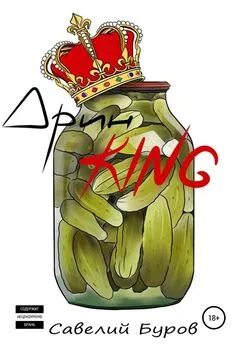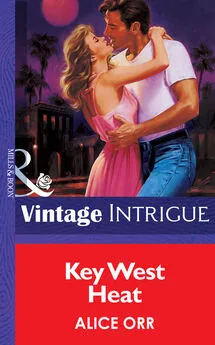Stephen King - Duma Key
- Название:Duma Key
- Автор:
- Жанр:
- Издательство:неизвестно
- Год:неизвестен
- ISBN:нет данных
- Рейтинг:
- Избранное:Добавить в избранное
-
Отзывы:
-
Ваша оценка:
Stephen King - Duma Key краткое содержание
Duma Key - читать онлайн бесплатно полную версию (весь текст целиком)
Интервал:
Закладка:
"Then stop blaming me," I said in a hoarse, not-quite-breaking voice. Suddenly I remembered Ilse getting ready to go back to Brown, Ilse standing in the strong tropical sun outside the Delta terminal, looking up at me and saying, You deserve to get better. Sometimes I wonder if you really believe that. "What's happened to me isn't my fault. The accident wasn't my fault and neither is this. I didn't ask for it."
She screamed, " Do you think I did? "
I closed my eyes, begging something, anything, to keep me from giving back anger for anger. "No, of course not."
"Then leave me out of it! Stop calling me! Stop SCARING me!"
She hung up. I stood holding the phone to my ear. There was silence, then a loud click. It was followed by that distinctive Duma Key warbling hum. Today it sounded rather subaqueous. Maybe because of the rain. I hung the phone up and stood looking at the suit of armor. "I think that went very well, Sir Lancelot," I said.
No reply, which was exactly what I deserved.
x
I crossed the plant-lined main hall to the doorway of the China Parlor, looked in at Elizabeth, and saw she was sleeping in the same head-cocked position. Her snores, which had earlier struck me as pathetic in their naked antiquity, were now actually comforting; otherwise, it would have been too easy to imagine her sitting there dead with her neck broken. I wondered if I should wake her, and decided to let her sleep. Then I glanced right, toward the wide main staircase, and thought of her saying Oh, you'll find it on the second floor landing.
Find what?
Probably it had been just another bit of gibberish, but I had nothing better to do, so I walked down the hall that would have been a dogtrot in a humbler house - the rain tapping the glass ceiling - and then climbed the wide staircase. I stopped five risers from the top, staring, then slowly climbed the rest of the way. There was something, after all: an enormous black-and-white photograph in a frame of narrow banded gold. I asked Wireman later how a black-and-white from the nineteen-twenties could have been blown up to such a size - it had to have been at least five feet tall by four wide - with so little blurring. He said it had probably been taken with a Hasselblad, the finest non-digital camera ever made.
There were eight people in the photograph, standing on white sand with the Gulf of Mexico in the background. The man was tall and handsome and appeared to be in his mid-forties. He was wearing a black bathing singlet that consisted of a strap-style shirt and trunks that looked like the close-fitting underwear basketball players wear nowadays. Ranged on either side of him stood five girls, the oldest a ripe teenager, the youngest identical towheads that made me think of the Bobbsey Twins from my earliest adventures in reading. The twins were wearing identical bathing dresses with frilled skirts, and holding hands. In their free hands they clasped dangly-legged, apron-wearing Raggedy Ann dolls that made me think of Reba... and the dark yarn hair above the vacantly smiling faces of the twins' dolls was surely RED. In the crook of one arm, the man - John Eastlake, I had no doubt - held girl number six, the toddler who would eventually become the snoring crone below me. Behind the white folks stood a young black woman of perhaps twenty-two, with her hair tied in a kerchief. She was holding a picnic basket, and judging from the way the not-inconsiderable muscles in her arms were bunched, it was heavy. Three bangled silver bracelets clung to one forearm.
Elizabeth was smiling and holding out her chubby little hands to whoever had taken this family portrait. No one else was smiling, although there might have been the ghost of one lurking around the corners of the man's mouth; he had a mustache, and that made it hard to tell. The young black nanny looked positively grim.
In the hand not occupied with supporting the toddler, John Eastlake held two items. One was a skin diver's facemask. The other was the harpoon pistol I had seen mounted on the wall of the library with the other weapons. The question, it seemed to me, was whether or not some rational Elizabeth had come out of the mental fog long enough to send me up here.
Before I could consider this further, the front door opened below me. "I'm back!" Wireman called. "Mission accomplished! Now who wants a drink?"
How to Draw a Picture (V)
Don't be afraid to experiment; find your muse and let her lead you. As her talent grew stronger, Elizabeth's muse became Noveen, the marvelous talking doll. Or so she thought. And by the time she discovered her mistake - by the time Noveen's voice changed - it was too late. But at first it must have been wonderful. Finding one's muse always is.
The cake, for instance.
Make it go on the floor, Noveen says. Make it go on the floor, Libbit!
And because she can, she does. She draws Nan Melda's cake on the floor. Splattered on the floor! Ha! And Nan Melda standing over it, hands on hips, disgusted.
And was Elizabeth ashamed when it actually happened? Ashamed and a little frightened? I think she was.
I know she was. For children, meanness is usually funny only when it's imagined.
Still, there were other games. Other experiments. Until finally, in '27...
In Florida, all out-of-season hurricanes are called Alice. It's a kind of joke. But the one that came screaming in off the Gulf in March of that year should have been named Hurricane Elizabeth.
The doll whispered to her in a voice that must have sounded like the wind in the palms at night. Or the retreating tide grating through the shells under Big Pink. Whispering as little Libbit lingered on the porch of sleep. Telling her how much fun it would be to paint a big storm. And more.
Noveen says There are secret things. Buried treasures a big storm will uncover. Things Daddy would like to find and look at.
And that turned the trick. Elizabeth cared only a little about painting a storm, but pleasing her Daddy? That idea was irresistible.
Because Daddy was angry that year. Mad at Adie, who wouldn't go back to school even after her European Tour. Adie didn't care about meeting the right people or going to the right deb balls. She was besotted with her Emery... who wasn't the Right Sort at all, in Daddy's view of things.
Daddy says He's not our kind, he's a Celluloid Collar, and Adie says He's my kind, no matter what collar, and Daddy's furious.
There were bitter arguments. Daddy mad at Adie and vicey-versey. Hannah and Maria mad at Adie for having a handsome boyfriend who was both Older and Below Her. The twins scared by all that mad. Libbit scared, too. Nan Melda declared over and over that if not for Tessie and Lo-Lo, she would have gone back to her people in Jacksonville long since.
Elizabeth drew these things, so I saw them.
The boil finally popped its top. Adie and her Unsuitable Young Man eloped off to Atlanta, where Emery had been promised work in the office of a competitor. Daddy was raging. The Big Meanies, home from the Braden School for the weekend, heard him on the telephone in his study, telling someone he'd have Emery Paulson brought back and horsewhipped within an inch of his life. He would have them both horsewhipped!
Then he says No, by God. Let it be what it is. She's made her bed; let her sleep in it.
After that came the storm. The Alice.
Libbit felt it coming. She felt the wind begin to rise and blow out of simple charcoal strokes as black as death. The size of the actual storm when it arrived - the pelting rain, the freight-train shriek of the gale - frightened her badly, as if she had whistled for a dog and gotten a wolf.
But then the wind died and the sun came out and everyone was all right. Better than all right, because in the Alice's aftermath, Adie and her Unsuitable Young Man were forgotten for a time. Elizabeth even heard Daddy humming as he and Mr. Shannington cleaned up the wreckage in the front yard, Daddy driving the little red tractor and Mr. Shannington throwing drowned palm-fronds and busted branches into the little trailer trundling along behind.
The doll whispered, the muse told its tale.
Elizabeth listened and painted the place off Hag's Rock that very day, the one where Noveen whispered the buried treasure now lay exposed.
Libbit begs her Daddy to go look, begs him begs him begs him. Daddy says NO, Daddy says he's too tired, too stiff from all that yardwork.
Nan Melda says Some time in the water might loosen you up, Mr. Eastlake.
Nan Melda says I'll bring down a picnic lunch and the l'il girls.
And then Nan Melda says You know how she is now. If she say something's out there, then maybe...
So they went downbeach by Hag's Rock - Daddy in the swimsuit that no longer fit him, and Elizabeth, and the twins, and Nan Melda. Hannah and Maria were back in school, and Adie... but best not talk about her. Adie's IN DUTCH. Nan Melda was carrying the red picnic basket. Inside was the lunch, sunhats for the girls, Elizabeth's drawing things, Daddy's spear-pistol, and a few harpoons for it.
Daddy puts on his flippers and wades into the caldo up to his knees and says This is cold! It better not take long, Libbit. Tell me where this fabulous treasure lies.
Libbit says I will, but do you promise I can have the china dolly?
Daddy says Any doll is yours - fair salvage.
The muse saw it and the girl painted it. So their future is set.
9 - Candy Brown
i
Two nights later I painted the ship for the first time.
I called it Girl and Ship to begin with, then Girl and Ship No. 1, although neither was its real name; its real name was Ilse and Ship No. 1. It was the Ship series even more than what happened to Candy Brown that decided me on whether or not to show my work. If Nannuzzi wanted to do it, I'd go along. Not because I was seeking what Shakespeare called "the bubble reputation" (I owe Wireman for that one), but because I came to understand that Elizabeth was right: it was better not to let work pile up on Duma Key.
The Ship paintings were good. Maybe great. They certainly felt that way when I finished them. They were also bad, powerful medicine. I think I knew that from the first one, executed during the small hours of Valentine's Day. During the last night of Tina Garibaldi's life.
ii
The dream wasn't exactly a nightmare, but it was vivid beyond my power to describe in words, although I captured some of the feeling on canvas. Not all, but some. Enough, maybe. It was sunset. In that dream and all the ones which followed, it was always sunset. Vast red light filled the west, reaching high to heaven, where it faded first to orange, then to a weird green. The Gulf was nearly dead calm, with only the smallest and glassiest of rollers crossing its surface like respiration. In the reflected sunset glare, it looked like a huge socket filled with blood.
Silhouetted against that furnace light was a three-masted derelict. The ship's rotted sails hung limp with red fire glaring through the holes and rips. There was no one alive on board. You only had to look to know that. There was a feeling of hollow menace about the thing, as though it had housed some plague that had burned through the crew, leaving only this rotting corpse of wood, hemp, and sailcloth. I remember feeling that if a gull or pelican flew over it, the bird would drop dead on the deck with its feathers smoking.
Floating about forty yards away was a small rowboat. Sitting in it was a girl, her back to me. Her hair was red, but the hair was false - no live girl had tangled yarn hair like that. What gave away her identity was the dress she wore. It was covered with tic-tac-toe grids and the printed words I WIN, YOU WIN, over and over. Ilse had that dress when she was four or five... about the age of the twin girls in the family portrait I'd seen on the second floor landing of El Palacio de Asesinos.
Читать дальшеИнтервал:
Закладка:








